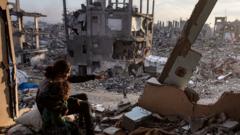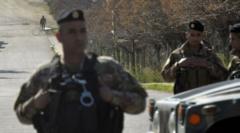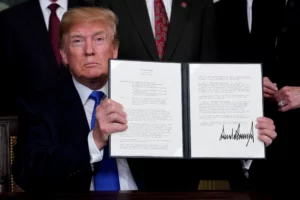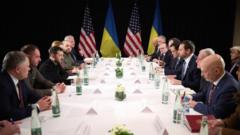As the Gaza ceasefire deal teeters on the brink of collapse, conflicting statements from Israeli leaders and Hamas officials raise concerns over the potential resumption of hostilities. Diplomatic efforts by Egypt and Qatar strive to maintain the fragile truce amid fears of escalating violence.
Tensions Rise as Gaza Ceasefire Faces Uncertain Future

Tensions Rise as Gaza Ceasefire Faces Uncertain Future
Continued confusion and mixed signals threaten the fragile ceasefire between Israel and Hamas, prompting urgent diplomatic efforts from regional mediators.
The ceasefire agreement between Israel and Hamas, established on January 19, is under significant strain, with reports indicating it may be on the verge of total breakdown. Recent developments have led to increased diplomatic maneuvers from regional players such as Egypt and Qatar, who have expressed a commitment to salvaging the deal, which is considered crucial for stability.
In a pivotal moment, a senior Hamas delegation has traveled to Cairo, emphasizing the group's commitment to the ceasefire terms. However, Israel's Prime Minister Benjamin Netanyahu has issued a stark ultimatum stating that if hostages are not returned by Saturday, military action will resume. This has created uncertainty regarding the specifics of the hostages' release, with conflicting messages emerging about the number and status of those involved.
Political tensions exacerbate the situation, as mixed messaging from Israeli officials creates confusion among citizens and analysts alike. Netanyahu's insistence on a hostages' return has prompted varied interpretations, leading to public statements that further complicate the issue.
Hamas has raised concerns about Israeli violations during the ceasefire, particularly regarding humanitarian aid flows, alleging that these delays affect the hostage negotiations. As the position of U.S. President Trump has introduced a radical proposal for Gaza's management—suggesting the relocation of its population—Israel's far-right elements have strengthened, advocating for a more aggressive stance.
The current situation has intensified fears among hostages' families and war-weary Gazans, with calls for the Israeli government to ensure the safe release of all captives. Despite the ceasefire, there are critical needs for humanitarian aid which remain unaddressed, according to Hamas, including essential supplies for those returning to their devastated neighborhoods.
Regional mediators continue to stress the need for adherence to the ceasefire terms, warning that a collapse would lead to renewed violence with severe regional implications. The complexities surrounding the aid distribution and the current humanitarian situation highlight the precariousness of the ceasefire.
As the initial ceasefire phase is set to conclude in March, the overall outlook remains uncertain, with negotiations stalling amid internal pressures on the Israeli government and ongoing power dynamics among Palestinian factions. A summit of Arab leaders, aimed at discussing Gaza’s future, is expected to take place soon, further illustrating the intricate geopolitical landscape at play.




















